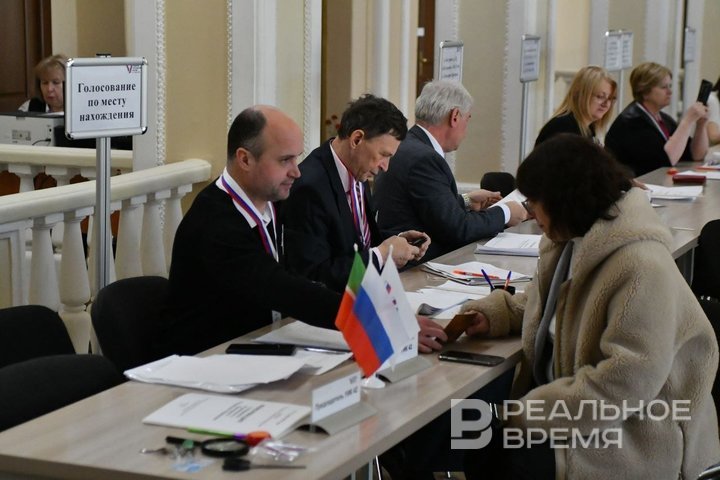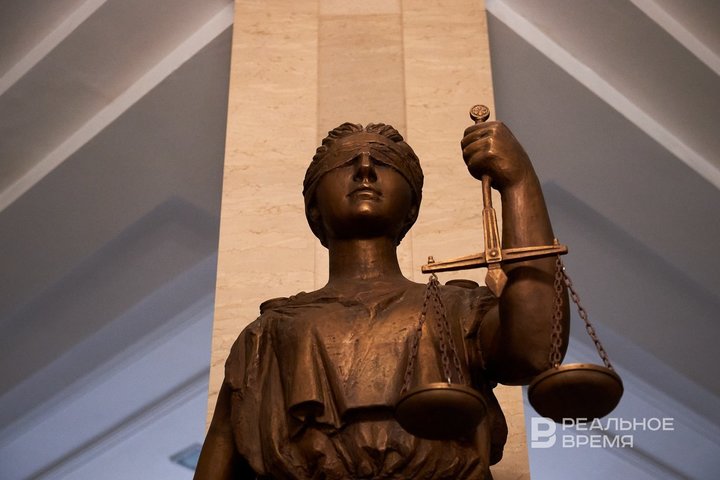Constitutional Court allows self-employed to run for elections
Previously, Russian legislation did not equate the term “self-employed” with payers of income tax

How self-employed turned out to be worse than unemployed and a housewife
Wishing to run for local deputies in Moscow, citizen Silaeva faced legal uncertainty regarding the already widespread tax regime — self-employment. This term has long taken root in the language, denoting those who are registered as payers of professional income tax. Removing the complex term from everyday use, even the Public Services portal offers to “register self-employment” or get “certificates of the self-employed”.
But in tax documents, such people turn out to be not self-employed, but people registered as payers of professional income tax (self-employment tax). The formal difference between the terms was the reason for Silayeva's refusal to participate in the elections in 2022.

“By the decision of the election commission <...> dated July 21, 2022, with which the Moscow City Election Commission agreed, E.G. Silayeva, who was nominated by way of self-nomination, was denied registration as a candidate for deputy," the Constitutional Court said in its ruling.
The reason is precisely the difference in concepts. In the signature collection form, the citizen indicated that she was “self-employed”, and the tax certificate indicated that she was a self-employment tax payer. This was the reason to invalidate the signatures given for it. At the same time, the law allows both working and unemployed people to register as candidates equally.
For example, the Constitutional Court notes, in the absence of a primary place of work, the law allows you to specify the occupation: pensioner, unemployed, student, housewife, temporarily unemployed. At the same time, the provision of the law establishes a general requirement to indicate the place of work or service or occupation, but does not include specific options.
It's all about the wording
The Constitutional Court noted that the root of this issue lies in the decision of the Central Election Commission on the list and form of documents required for registration as a candidate for deputies. It states that persons applying the special tax regime “Professional Income Tax” provide an appropriate certificate of registration as a payer of the self-employment tax.
According to this logic, in other documents, as a type of occupation, it should be indicated that they “are individuals applying the special tax regime “Tax on professional income”. The difference from the term “self-employed” turns out to be striking. At the same time, the Constitutional Court pointed out, it is impossible to document the status of self-employed in this case.
In this matter, the Court noted that the legislative requirement to indicate the occupation is not consistent with the need to indicate the applicable tax regime on an alternative basis. At least in cases where the self-employment tax payer is not registered as an individual entrepreneur.
“The category of 'self-employed' is widely used in many by-laws — presidential, government, departmental — regulatory legal acts, including those adopted after the entry into force of the Federal Law [on the self-employed] and often designating the self-employed and individuals applying a special tax regime, but, as a rule, do not include individual entrepreneurs," the decision of the Constitutional Court says.
From this, the court concluded that the use of the term “self-employed” at various government levels actually legally recognises it as an income-generating taxable activity.
Right to run
The term “self-employed” already exists in a number of regional election laws. The Constitutional Court cited Ingushetia and Krasnodar Krai Territory as examples. There, in the relevant legal acts, it is indicated that the candidate should indicate as a type of activity: “an individual entrepreneur, self-employed, a member of a peasant (farmer) farm, <...>".
The Constitutional Court of Russia has ruled that this practice must be extended to elections at all levels. The Constitutional Court called unacceptable the recognition of signatures as unreliable due to that the candidate indicated self-employment as an occupation.

“Ignoring the status of a self-employed citizen, unrelated to his registration as an individual entrepreneur, during the preparation and conduct of various electoral actions leads to that, contrary to the guaranteed freedom of democratic elections <...>, candidates, just like voters, create obstacles that have no constitutionally significant justification for full participation in the electoral process," it is said in the ruling of the Constitutional Court.
As a result, the Constitutional Court decided that the legislator needs to make appropriate changes to the laws regarding the regulation of electoral rights. The court also recognised Silayeva's right to receive compensation, its size and form will be determined by the Moscow court.